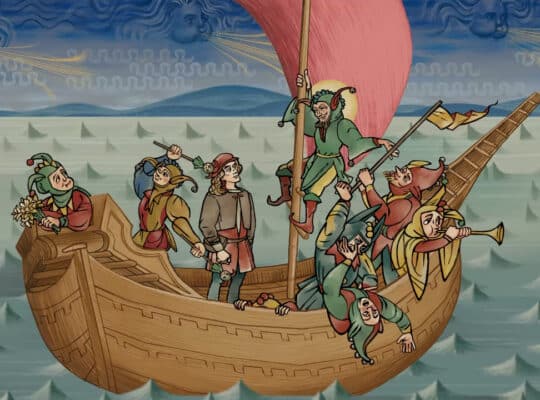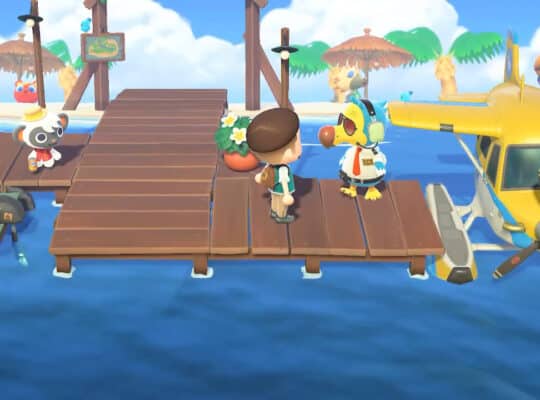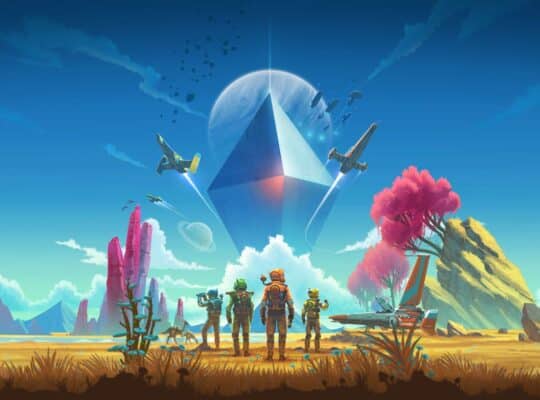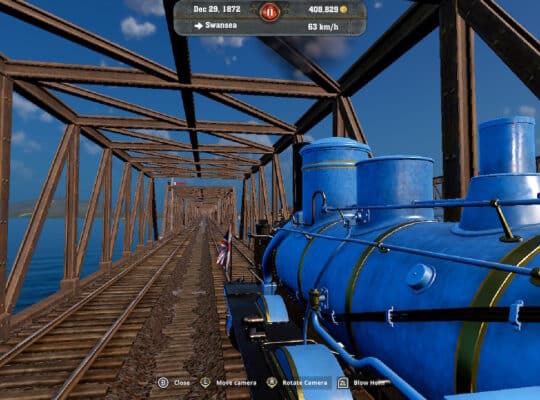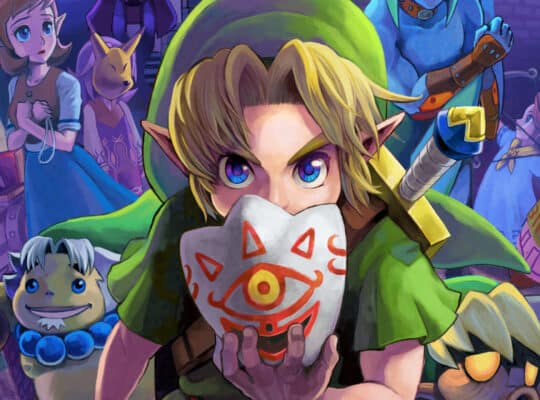It’s no secret that the video game industry has had a turbulent year with worldwide lay-offs mainly impacting larger studios. Many analysts suggest that we are approaching the age of Indies, with smaller devs being able to weather the storm. One such developer is Rohan Nowell of Rotub Games, an Australian video game developer who’s busy at work with “Doggy Don’t Care,” a bright and colourful game that follows a mischievous dog that causes all sorts of mayhem while his owners are away. We had a chat to Rohan about Development Down Under, and Doggy Don’t Care.

How did you come up with the idea of Doggy Don’t Care?
I had been working on a more serious and darkly-toned 2D game about grief for about a year when it became too emotionally taxing, so I decided to pivot towards a silly and colourful alternative. I had dogs on my mind because my wife and I were in the process of adopting one. I was a little concerned about the problems he might cause in our unit by peeing on things, chewing stuff, etc. Naturally, this evolved into me building a game about a dog messing up a house! It also sweetened the deal if he did do something naughty because it would hopefully generate ideas for the game. I’ve always loved games like Banjo-Kazooie and really liked the simplicity and silliness of Untitled Goose Game. So I decided I would create a game inspired by them about a dog left at home alone getting up to mischief (Untitled Goose Game) and he would have a sidekick Parrot who eggs him on with quirky and humorous pun-riddled dialogue (Banjo-Kazooie).
What is your background in relation to game development? How did you make the transition into Game dev?
For my major Software Development project in my last year at school I made a clone of Duck Hunt in a programming language called Future Basic II. It was my introduction to programming. I did quite well and loved the experience of building a game. However, I didn’t see or even consider making games a realistic career path so I gravitated towards Web Development which I pursued for nearly 10 years. At some point I watched Indie Game: The Movie and I thought to myself “wait, these people are just like me, maybe I could have made games after all”. So I started taking an interest in the indie games world. I started dabbling with the idea and then when my brother died in 2019, I shifted to take the dream of making games more seriously. I made and released a mobile game called Swoopy Boi within 6 months which was downloaded over 30,000 times and reached the top and trending charts on both iOS and Android. My years of trying different things have all contributed to my indie game development – my web development background helps me code, learning to draw helps me with design and colour theory, and my business degree helps me navigate the boring stuff behind the scenes.
Given the tumultuous layoffs in the video game industry, how do you feel the Australian Game development scene is right now?
I find it really challenging seeing layoffs, it’s scary seeing the industry implode on itself but it also builds pressure for myself to make something great with the opportunities I have been given. I tell myself (and I have heard other indie devs say) “It’s especially hard for AAA games and studios at the moment. This is an opportunity for the little guys to shine.”; I take that with a grain of salt but I do think this is a great time to make smaller heart-felt games for people to enjoy in tough times.
This year, you took the leap into full-time development of Doggy Don’t Care… What lead to making the jump, and how do you feel about your choice?
I left full-time work 7-8 years ago because I had become burnt out and unmotivated in an office environment. That was a great decision. My wife and I moved to Amsterdam for a year, which I took as an opportunity to really mix things up. I worked as a Deliveroo rider and freelance illustrator and loved it. Arriving back in Australia I got a part-time job as a barista 6-minutes walk from my house. This meant I could dedicate a few days a week to making games. I loved working a less-stressful job and not having work-related problems swirling around my subconscious all the time; leaving me with mental energy for game development. Since launching Swoopy Boi in 2020 I have learned a lot about game dev and marketing. Looking back I think that game had so much more potential if only I had the knowledge I have now – which I hope is translating over to Doggy Don’t Care. Doggy Don’t Care has gained lots of traction and a bit of a following for which I am so grateful. To make the most of this opportunity and make the best game possible I felt like I needed to commit to the project full-time. So far I am really enjoying working for myself, building a game, and developing a character that I absolutely love.
You’ve used creative marketing and memes to build interest in Doggy Don’t Care. What strategies have you found most effective, and how do you think humor plays a role in game promotion?
I want Doggy Don’t Care to make people smile and give players an outlet for being silly. The best way I could get that message across is through memes. My main strategy for marketing Doggy Don’t Care has been consistency. I achieved this by blocking out time specifically for making memes and scheduling them to post once per day for up to 6 weeks in advance. On top of this I’ve focused on developing a knack for recognizing when an idea or meme gets attention and really honing in on that particular joke or topic. I will drop everything to further develop a well-received meme because they can be so powerful and they are just so much fun to make. They can also lead to inspiring more ideas for the game.
What influenced the art style of Doggy Don’t Care, and how does it complement the overall tone of the game?
Ironically the cartoony, low-poly art style was born out of my lack of skills in 3D modelling. I made a very short 3D game called My Little Space Game for a jam but other than that I had no 3D experience. As I’ve become more confident in the 3D space, Doggy Don’t Care has slightly evolved but it will always have a minimalist vibe to the overall design. This is because I think my strengths are found in following the mentality that less is more. This clean, neat, and minimal approach to design complements the game because each level starts off with a neat and minimal vibe, but by the end the place is left quite the opposite.
What have been some of the biggest challenges during the development of Doggy Don’t Care, and how have you overcome them?
I think skill creep is a big one. It’s really hard not to look at various things in Doggy Don’t Care and think “ah, I really should redo that, I could do a much better job now” – but that is a never ending cycle. My mantra in game dev is “done is better than perfect”. I believe so many game developers never finish/release their games because they feel like they can always make it better – they’re own skills/talent have creeped up on them! While I am proud of my work in Swoopy Boi, I am more proud of actually finishing and releasing it. That was an important lesson to learn. Another huge one for me is in programming. I can do it but my imposter syndrome is always hammering away inside me saying “someone else could code this much better.” – to which I tell myself “done is better than perfect”. I also don’t like the saying “practice makes perfect”, I prefer “practice makes progress.”
How has the community responded to the game so far, and how important is community feedback in shaping the development process?
It has been an absolute blast watching streamers and YouTubers play the demo. Observing players enjoy something I have put so much time and effort into means so much. I’m always extra appreciative when they notice and love the little things (like bone-shaped clouds) and stuff like that. I’ve had very little negative feedback, if at all, which makes me proud and nervous because I know it has room for improvement! Like I said, I’m still developing my technical skills so I am really leaning into the humour and silliness of the game. More than anything I want the game to be fun and provide a chance for players to be a mischievous dog for a few hours with a sense of achievement having solved puzzles for mischievous badges.
Can you share a fun or surprising fact about the development process or the game itself that fans might not know?
In the game, when you run along the piano, that’s actually a recording of my dog running along a piano.
What’s the one thing you hope players will take away from their experience with Doggy Don’t Care?
I hope to create a similar feeling for players that I had while playing Untitled Goose Game during COVID lockdown, but with a unique spin to it. That is – amazement at how much joy a seemingly simple game can bring, and a sense of achievement for solving puzzles.
Any hope for release on other platforms?
While I’m focused on Steam at the moment it’s definitely a dream and long-term plan of mine to get it on to consoles.
How can readers support Rotub and Doggy Don’t Care?
Wishlist Doggy Don’t Care, tell your favourite streamers to play the demo, and join the mailing list.
What message would you have for Aspiring Aussie developers who are thinking of creating their own game?
Just start building something, and the ideas will come. Don’t keep redoing old work—keep moving forward. Find local game dev meetups and connect with like-minded people. And remember, done is better than perfect.
Thank you, Rohan, so much for agreeing to this interview. I know I’m very excited to see more from Doggy Don’t Care, and have my fingers and toes crossed for a Switch release. I hope everyone enjoyed this insightful and deep dive into video game development in Australia. For those looking to get some support behind Rohan and Doggy Don’t Care, you can wish-list the game here – https://store.steampowered.com/app/2438180/Doggy_Dont_Care/ (currently on available on Steam,) and join the Rotub Games mailing list to stay up to date with all the Doggy Don’t Care news.

